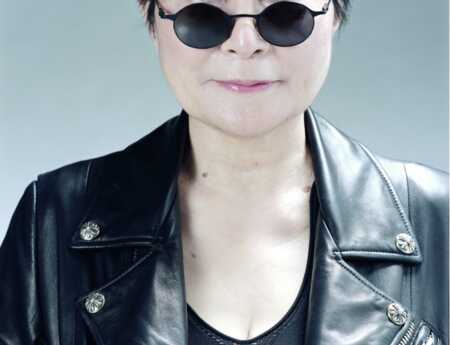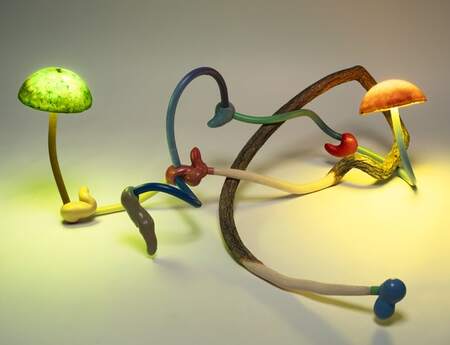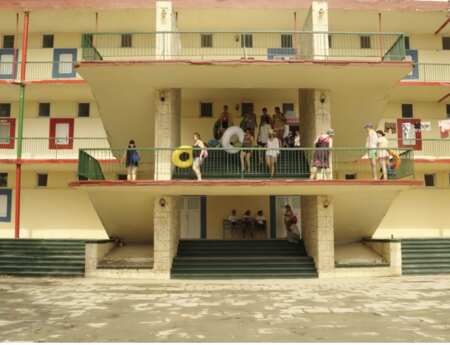Belvedere 21
Arsenalstrasse 1
1030 Vienna
Österreich
Hans Haacke: Retrospective
Hans Haacke (b. 1936) is a legend of political conceptual art—and his work remains strikingly relevant in today’s world. As a founding figure of artistic institutional critique, Haacke redefined the relationship between art and society and profoundly influenced generations of artists.
Beginning in the 1960s, Haacke first explored biological, physical, and ecological before shifting his focus to socio-political structures. His work unflinchingly addresses abuses of power, mechanisms of exclusion and inequality, historico-political disruptions; the entanglements of public institutions, politics, and economics, while also confronting anti-democratic tendencies.
This exhibition is an invitation to rediscover Haacke’s art and its relevance to the pressing questions of our time: How do capital, ideology, and history shape our lives? What images, rhetoric, and manipulative tactics does nationalist populism employ? How about the complicity of the art world, but also the critical potential of art? With a comprehensive selection from all periods, from 1959 to the present, the retrospective highlights the versatility of Haacke’s oeuvre. In addition to numerous iconic works, it includes in particular those projects that Haacke developed specifically for the Austrian context.
The exhibition is being held in cooperation with Schirn Kunsthalle Frankfurt.
Curated by Luisa Ziaja.
Assistant Curator: Katarina Lozo and Theresa Dann-Freyenschlag
The roughly chronological exhibition kicks off with Haacke’s physical, biological, and ecological experiments from the 1960s, including his famous “real time systems” such as the Large Condensation Cube (1963–67). They demonstrate Haacke’s engagement with the ZERO group as well as with approaches from Minimalism, Op Art, and Kinetic Art, but most of all the lasting influence of interdisciplinary systems theories and the principles of cybernetics. Haacke subsequently transferred his practice of demonstrating processes and phenomena to economic, social, and political systems, and expanded it byan institution-critical line of inquiry based on factual observations.
The visualization of conditions and structures through the evaluation of mostly publicly accessible data often triggered far-reaching debates. For example, Shapolsky et al. Manhattan Real Estate Holdings, a Real-Time Social System, as of May 1, 1971 (1971) revealed corporate machinations in the interest of real estate speculation. Meanwhile, Manet-PROJEKT '74 (1974) used the provenance of Édouard Manet’s Bundle of Asparagus (1880) to reveal Nazi continuities in the post-war era. An engagement with Nazi history, its continuities after 1945, and its impact on the political reality of the present is constant throughout the work of the artist, who was born into National Socialist Germany and witnessed its immediate aftermath.
With the installation And You Were Victorious After All (1988), developed for steirischer Herbst in Graz, Haacke reconstructs a Nazi victory monument and transforms it into a memorial for the victims of National Socialism, thus making a significant contribution to a new culture of remembrance in Austria. His award-winning contribution to the German pavilion at the Venice Biennale, GERMANIA (1993), transformed it into a sensational field of rubble by breaking up the marble floor laid during the Nazi era as a commentary on the past and present of the newly reunified Germany. On the occasion of the installation, Haacke published the essay “Gondola! Gondola!” in the accompanying catalogue. The artist developed one of his best-known works in 2000 for an inner courtyard of the Reichstag building in Berlin: he countered the völkisch ideology of the façade inscription “Dem Deutschen Volke” (to the German people) with the dedication “Der Bevölkerung” (To The Population). Conceived for public spaces, the banner and poster work We (All) Are the People (2003/17 – ongoing) references the right-wing appropriation of the Peaceful Revolution slogan and reappropriates it as an appeal for cultural diversity and tolerance.


